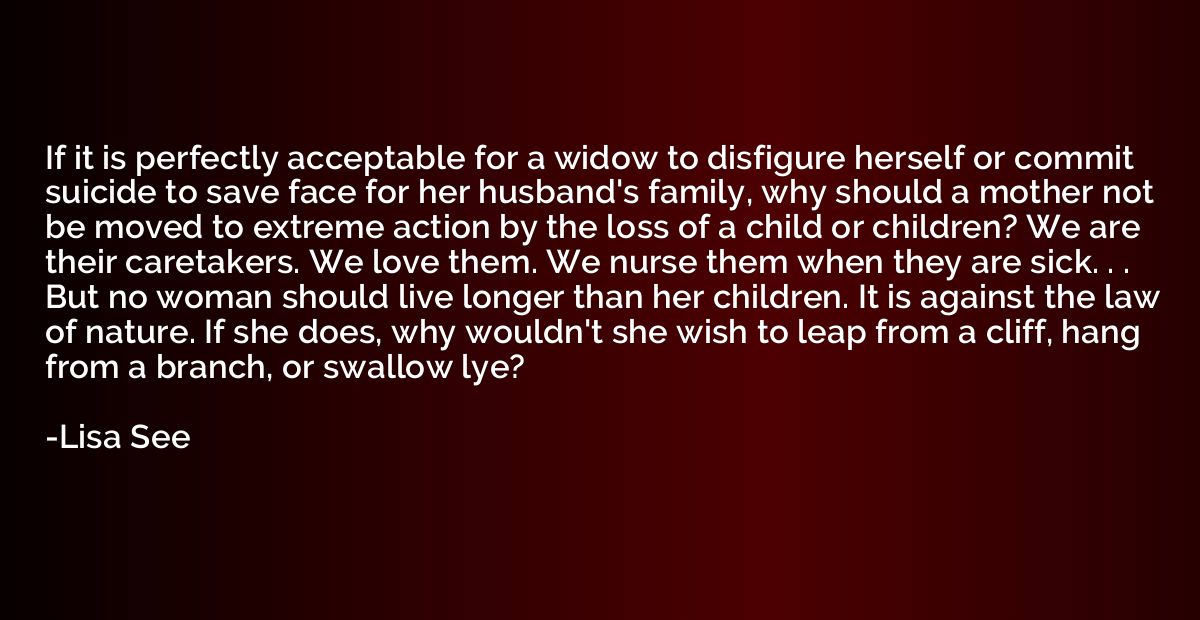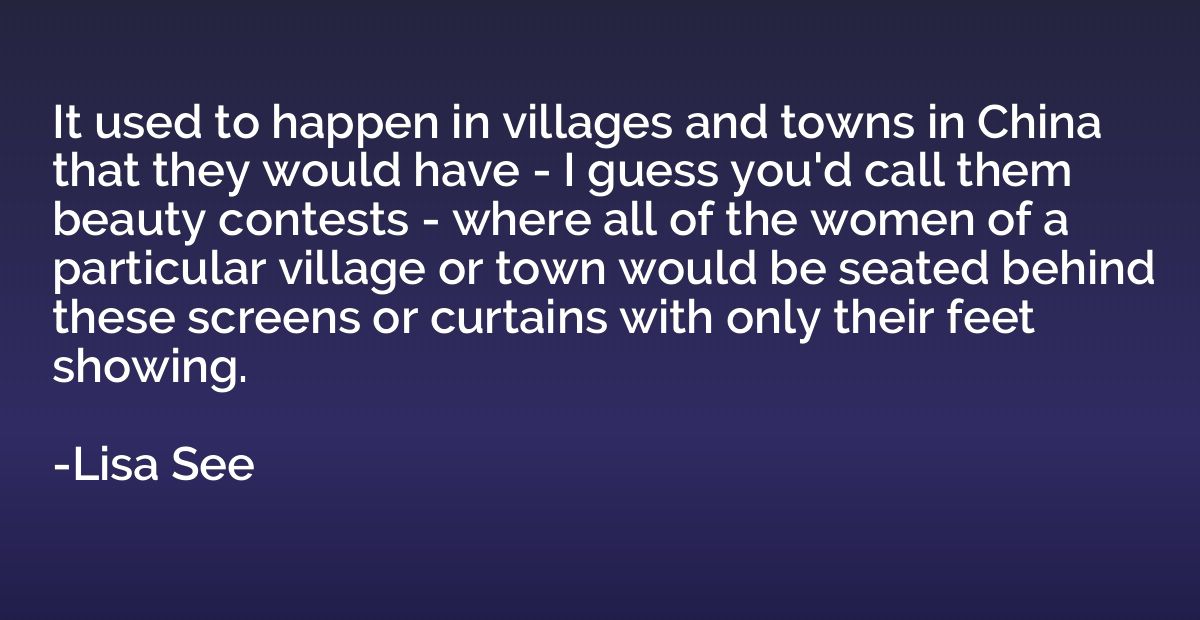Lisa See Quotes
A collection of quotes by Lisa See.
Lisa See is an American author celebrated for her insightful and culturally immersive novels set in China or among Chinese American communities. Born on February 18, 1955, in Paris, France, to a Chinese mother and an American father, See grew up in Los Angeles surrounded by her family's rich Chinese heritage. She credits her mother, author Carolyn See, for instilling in her a passion for storytelling.
See's writing frequently explores the lives of women, intergenerational relationships, and the complexities of Chinese and Chinese American history. She gained widespread acclaim with her breakthrough novel, "Snow Flower and the Secret Fan" (2005), which delves into the intimate bond between two women in 19th-century China. The success of this novel led to its adaptation into a feature film.
Her other notable works include "Shanghai Girls" (2009), "Dreams of Joy" (2011), and "The Tea Girl of Hummingbird Lane" (2017). These novels skillfully combine historical events with compelling characters, capturing the struggles, triumphs, and resilience of Chinese women caught in a rapidly changing world.
With her vivid storytelling and meticulous research, Lisa See has become a respected voice in contemporary literature. Her novels not only entertain readers but also provide nuanced insights into Chinese history and culture, encouraging cross-cultural understanding and appreciation. As an author who values her roots, See has had a significant impact on contemporary American literature.








